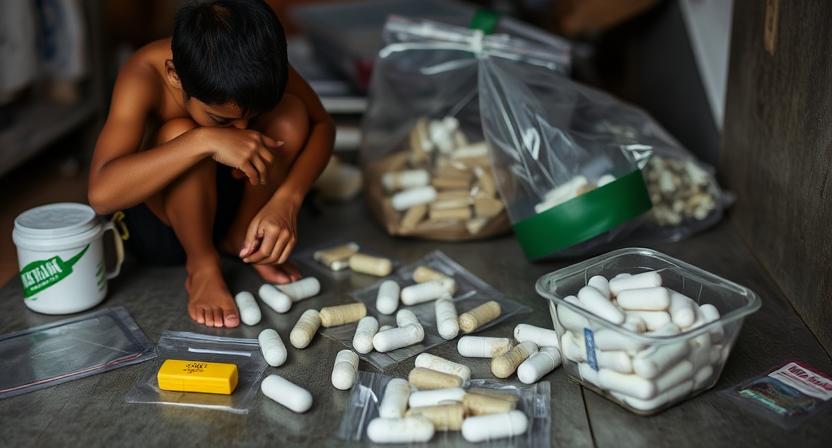- About Us
- Legal Services
- Family Law
- Property
- Marriage
- Immigration
- Contact
- Payments
In Thailand, located in the Golden Triangle. Makes drug trafficking one of the most serious criminal offenses in Thailand. This has brought with it legal penalties which includes life imprisonment as well as the death penalty. Speak to a criminal law firm in Thailand.
The drug legislation is mainly governed by the Narcotic Act B.E. 2522 (1979) and the Psychotropic Substances Act B.E. 2518 (1975). There is more of this on the website. There are also relevant sections of the Thai Penal Code and Criminal Procedure Code. The offense of drug trafficking covers possession, production, importation, exportation, and sale of illegal drugs with the intent to distribute. We will explain this down below.

This article seeks to provide a detailed overview of drug trafficking in Thailand. Showing the applicable laws, criminal procedure, penalties, notable case examples, and defenses under Thai law.
